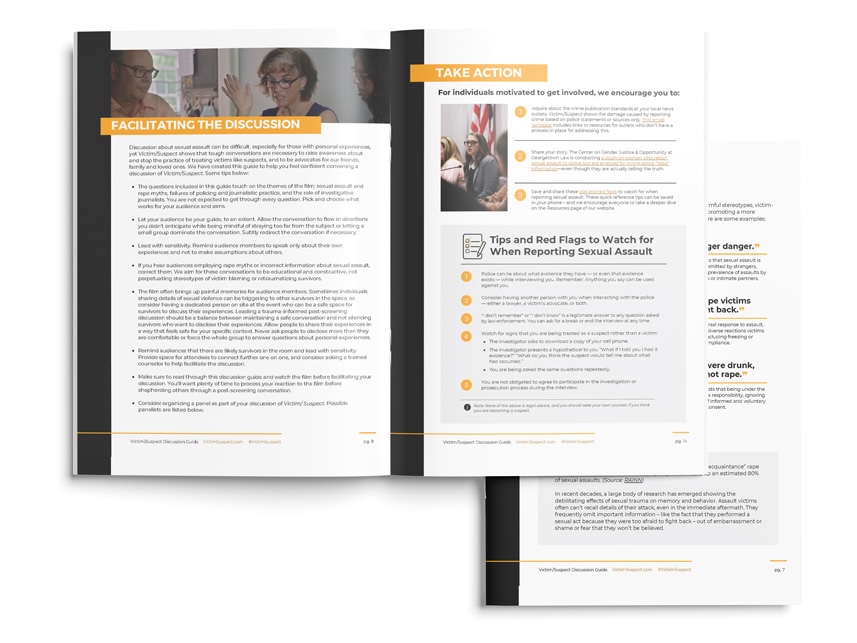Victim/Suspect raises urgent questions about how our legal system treats survivors—and what lawmakers can do to change it. This page offers tools for elected officials, staffers, and advocates looking to strengthen protections for victims and improve investigative practices. Use the film to spark conversation, review real legislation that’s driving change in states across the country, and explore how policy can help prevent victims from being retraumatized by the very systems meant to protect them.
Tools for Policymakers
When Victims Become Suspects
Developed for screenings of the documentary Victim/Suspect and conversations that follow, our discussion guide equips audiences with tools to confront the troubling reality of sexual assault survivors being criminalized after reporting. Featuring thematic questions, background on rape myths, and strategies for trauma-informed conversation, it’s designed to foster honest dialogue, challenge harmful biases, and support systemic change in policing, journalism, and advocacy.





